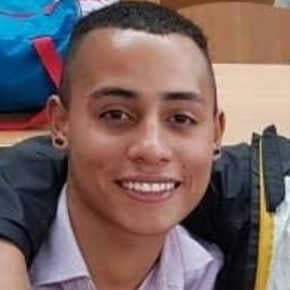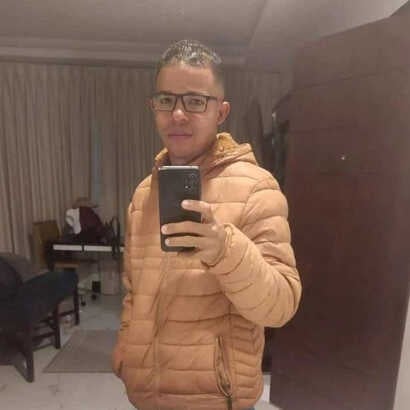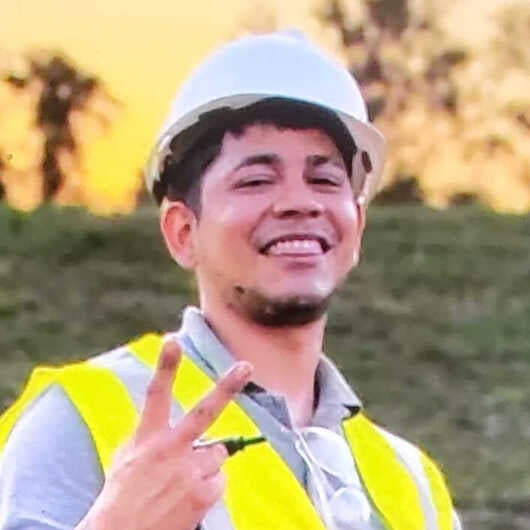On March 15, President Donald Trump’s administration sent more than 230 Venezuelan immigrants to a maximum-security prison in El Salvador. Without providing evidence, Trump has called the men “some of the most violent savages on the face of the Earth.”
Last week, the men were released as suddenly as they'd been taken away. Now, the truth of all their stories — one by one — will begin to be told.
Starting here.
The Men Trump Deported to a Salvadoran Prison
We’ve compiled a first-of-its-kind, case-by-case accounting of 238 Venezuelan men who were held in El Salvador. To do so, ProPublica, The Texas Tribune and a team of Venezuelan journalists from Alianza Rebelde Investiga (Rebel Alliance Investigates) and Cazadores de Fake News (Fake News Hunters) spent the past four months reporting on the men’s lives and their backgrounds. We obtained government data that included whether they had been convicted of crimes in the U.S. or had pending charges. We found most were listed solely as having immigration violations. We also conducted interviews with relatives of more than 100 of the men; reviewed thousands of pages of court records from the U.S. and South America; and analyzed federal immigration court data. Read more about our methodology.
White House spokesperson Abigail Jackson did not respond to questions about the men in the database but said Trump “is committed to keeping his promises to the American people and removing dangerous criminal and terrorist illegals who pose a threat to the American public.” She referred questions to the Department of Homeland Security, which did not respond.
Search below to learn more about the men.
238 people
Legal Justification for Removal
How the Government Labeled Them
Tattoos
Help Us Report
We are still reporting. Are you or someone you know one among the people who were deported? Do you have information about the deportation operation to share? You can fill out this form or reach our tip line on Signal at 917-512-0201 or WhatsApp at 917-327-4868.
Jorge Daniel Tortosa Guédez27 years old
Tortosa left Venezuela for Ecuador in 2020, his mother told us. After four years, he traveled to the U.S., where he surrendered to the authorities. He settled in Texas and worked in construction. He broke his heel in a November 2024 accident, which left him unable to work or pay his rent, his mother said. In early 2025, he called his mother to tell her that he was going to the authorities to voluntarily self-deport. Tortosa’s family lost contact with him and then found his name on a list of deportees to El Salvador. “The American dream has become a nightmare for him and for us,” his mother said. He has a star tattooed on each shoulder, based on his social media feed. It’s unclear if the tattoos played a role in the government labeling him a member of the Tren de Aragua gang.
U.S. government data we obtained lists Tortosa as having a criminal conviction for invasion of privacy. We found records showing he was charged with criminal trespassing in Harris County, Texas, in November 2024. He pleaded guilty the following month and was sentenced to 25 days of confinement, time which he received credit for already serving. “There’s nothing about him that in any way I would associate with a gang, and that was in no way connected to what he was accused of,” his criminal attorney, Michael R. A. Mueller, told us. “It was a low-level charge that would not have affected his immigration status in this country.” His mother was not aware of the charges. “He didn’t tell me, maybe not to worry me,” she said, but “my son is no Tren de Aragua.”
Carlos Julio Silva Freites24 years old
Silva worked in construction, as a waiter and at a popcorn stand while in Venezuela and then at a call center in Colombia, where he and his family had relocated in 2016. “What didn’t Carlos Julio do?” his mother told us. Silva later migrated to the U.S., where he hoped to earn enough money to help support his mother. In July 2024, he texted his mom excitedly after completing an interview at his appointment with U.S. border officials made via the CBP One app. The Biden administration used the app to try to bring order to the soaring numbers of migrants attempting to enter the country. A half hour later, he was detained after staff at the facility asked for Venezuelans to identify themselves, his mother told us. He remained in detention until he was deported to El Salvador and imprisoned. He had a pending asylum application at the time, according to our analysis of immigration court data. Silva has tattoos covering his back, arms and neck, including one that says “Gangsta” in cursive lettering on the back of his neck and a colorful illustration featuring two women’s faces and a flower covering his entire back. It’s unclear if his tattoos played a role in the government labeling him a member of the Tren de Aragua gang. The morning of March 15, Silva told his mom that an immigration official had ripped up his asylum case paperwork and told him, “Where you’re going, you won’t need these.”
He was not flagged as having criminal convictions or pending charges in U.S. government data that we obtained, and we found no related court or police records.
Jean Claude Mendoza Piña36 years old
Mendoza entered the U.S. with an appointment with border officials made via the CBP One app, his father told Telesur, a Venezuelan television station. The Biden administration used the app to try to bring order to the soaring numbers of migrants attempting to enter the country. Mendoza’s tattoos include a clock, a map of Venezuela and a rose. It’s unclear if they played a role in the government labeling him a member of the Tren de Aragua gang.
U.S. government data we obtained lists Mendoza as having pending criminal charges. We could not find related court or police records, and the Trump administration declined to provide information to support the claim.
José Alberto Carmona Hernández27 years old
Carmona migrated to the U.S. in 2023 and settled in Washington, D.C., where he worked in construction and carpentry, his sister told us. About a year later, he moved to New York and worked as a deliveryman for DoorDash. In New York, he shared an apartment with five other Venezuelan men. All six were detained in February when immigration officers entered their apartment one morning, his sister told us. The officers had been looking for someone else in an apartment downstairs and began knocking on doors. Four of the roommates, including Carmona, are being detained at the Salvadoran prison, his sister said. Carmona has several tattoos, including “Mora y Simón,” his parents’ names, on his left arm, his and his father’s initials on his shoulders, and a rosary. It’s unclear if the tattoos played a role in the government labeling him a member of the Tren de Aragua gang. Before he was detained, his sister said, he would call his father almost every day when he finished work. During his time in prison in El Salvador, his father, who was already sick and dealing with the effects of a stroke, had a second stroke, his family told us. Carmona has two children in Venezuela.
He was not flagged as having criminal convictions or pending charges in U.S. government data obtained by the news organizations, and no court or police records were found.
Lainerke Daniel Manzo Lovera30 years old
Manzo and his wife left Venezuela in December 2023, according to the nonprofit Robert F. Kennedy Human Rights. When they arrived in the U.S. in March 2024, his pregnant wife was allowed in but he was deported to Mexico. In October, he got an appointment with U.S. border officials made via the CBP One app, which the Biden administration used to try to bring order to the soaring numbers of migrants attempting to enter the country. Manzo was detained at his appointment and remained in immigration custody until he was sent to El Salvador. His daughter was born while he was in custody. His sister told Mother Jones that Manzo has a tattoo of a clock, which he’d gotten while living and working in Mexico as he waited for his CBP One appointment. It’s unclear if his tattoos played a role in the government labeling him a member of the Tren de Aragua gang.
He was not flagged as having criminal convictions or pending charges in U.S. government data that we obtained, and we found no related court or police records.
Keiber Enrique Leal Bautista25 years old
Leal left Venezuela in 2017 with his mother and lived for a time in Peru, according to his father, Luis Leal. In 2023, he migrated to the U.S., crossing the border near Brownsville, Texas, and turned himself in to Border Patrol agents, his father said. Afterward, he went to live with his father and brother in Las Vegas. The family later moved to Dallas and then to Houston, where he worked in construction and cleaned air conditioning units, his father said. Leal was visiting his girlfriend’s family in New Jersey when he was detained during an Immigration and Customs Enforcement operation at a gas station, according to his father. While in custody, he decided to drop his immigration case and return to Venezuela, saying he could no longer bear being detained, his mother, who has since returned to Venezuela, told us. His girlfriend, who was pregnant at the time, agreed to go with him. She miscarried after Leal was imprisoned in El Salvador, his father said. It’s unclear if Leal’s tattoos, which included a clown-like figure, played a role in the government labeling him a member of the Tren de Aragua gang.
U.S. government data we obtained lists Leal as having pending criminal charges. We found records showing that, in August 2024, he was arrested for possession of meth, a felony, in Dallas County, Texas. We also found records showing that, in October, he was arrested and then charged with shoplifting clothing and other merchandise from a Walmart in Charlotte, North Carolina. The case was pending as of mid-June, and it’s not clear if he entered a plea. His father told us he didn’t know anything about a charge in North Carolina and noted that the address listed on the ticket for his son was incorrect. Neither case amounted to a crime worthy of sending his son to a prison in El Salvador, the father said.
Junior Javier Orta Campos32 years old
Little public information is available about Orta’s life in Venezuela or how he came to the U.S. Please reach out if you have information to share.
He was not flagged as having criminal convictions or pending charges in U.S. government data that we obtained, and we found no related court or police records.
Gabriel Marcelo Zambrano Torrealba34 years old
Little public information is available about Zambrano’s life in Venezuela or how he came to the U.S. Please reach out if you have information to share.
He was not flagged as having criminal convictions or pending charges in U.S. government data that we obtained, and we found no related court or police records.
Jorge Luis Zárraga Rosales32 years old
Little public information is available about Zarraga’s life in Venezuela or how he came to the U.S., other than he appeared to have lived in Peru and had a pending asylum application when he was deported and imprisoned, according to our analysis of immigration court data. His mother said that she is certain her son hasn’t committed any crimes, and that he didn’t deserve to be in the Salvadoran prison. “His only crime was being an immigrant,” she said.
U.S. government data we obtained lists Zarraga as having pending criminal charges. We could not find related court or police records, and the Trump administration declined to provide information to support the claim. According to Peruvian police records, he was expelled from the country in 2020, barred from reentering and sent to Venezuela on a flight with other migrants, although the reasons for his expulsion are unclear. Three years later, Zarraga was arrested twice in Peru, for stealing a cellphone, trafficking in small quantities of drugs and illegal possession of weapons, according to records from the Peruvian police. We could not find related Peruvian court records for Zarraga.
Edwuar José Hernández Herrera23 years old
Hernández left for the U.S. in 2024, following three friends he had grown up with and played soccer with in their Venezuelan neighborhood, according to The Washington Post. His mother said he was detained after crossing the border and questioned by officers about his tattoos. He was eventually released with a court date in 2027, the Post reported. He settled in Dallas and worked in a tortilla factory. In March, immigration officers detained the four friends at their home, according to the newspaper. Days later, they were flown to El Salvador. A family friend told us Hernández had entered the U.S. through an appointment with border officials made via the CBP One app, which the Biden administration used to try to bring order to the soaring numbers of migrants attempting to enter the country. It’s unclear if his tattoos, which include a branch on his chest and an owl on his arm, played a role in the government labeling him a member of the Tren de Aragua gang. He has a young daughter who has posted videos on Facebook begging for her father’s return.
He was not flagged as having criminal convictions or pending charges in U.S. government data that we obtained, and we found no related court or police records.
Methodology
The information in this database covers 238 of the Venezuelan men who were sent to CECOT, a maximum-security prison in El Salvador, on March 15, and whose names were first published by CBS News. The men were released last week and returned to Venezuela. (In total, more than 250 Venezuelan men were imprisoned and released.)
The database is part of a joint investigation by ProPublica, The Texas Tribune and the Venezuelan news outlets Alianza Rebelde Investiga (Rebel Alliance Investigates) and Cazadores de Fake News (Fake News Hunters). To confirm the deportees’ identities, we used the men’s dates of birth to search official Venezuelan government databases, including the identity card database of the Ministry of People’s Power for Interior Relations, Justice and Peace; the public database of the National Institute of Social Security; and the public database of the Venezuelan Electoral Registry. The news organizations interviewed family members of more than 100 of the Venezuelan deportees, in addition to dozens of attorneys and advocates representing the men. The interviews were conducted before the men were freed, and many were done in Spanish.
We combed social media accounts of the men and their relatives, news stories, U.S. government press releases and court documents. To determine what happened with their immigration cases, we analyzed records from the U.S. Department of Justice’s Executive Office for Immigration Review.
We also exclusively obtained data sets the government had about the men before it deported them. Those data sets included whether they had been convicted of crimes in the U.S., had pending charges or were listed solely as having immigration violations. Some information was missing about nine men. To verify and expand on that information, we then searched U.S. public records databases; reviewed police, sheriff’s department and county court websites; read through court documents; and submitted dozens of public records requests to law enforcement agencies and court systems across the country. The findings on criminal records are not comprehensive since there’s no universal database of charges or convictions.
To find criminal histories in foreign countries, we reviewed records from the official website of the Venezuelan Supreme Tribunal of Justice and consulted a global legal database. We also interviewed police officials in Peru, Chile and Colombia. In addition, we obtained three Venezuelan police databases and a January 2024 Interpol report to create a list of more than 1,400 names of alleged Venezuelan gang members, including members of Tren de Aragua. We checked that against the names of the 238 men and found no matches.
For individuals whom the Trump administration flagged as having pending criminal charges or convictions in the U.S., we attempted to reach out to their relatives and to their defense attorneys. If we got a response, we included it.
In addition, we asked the Trump administration about each of these cases. Unless it’s noted in individual entries, the administration did not respond to questions about the men.
The database reflects the ages of the men on March 15.
Additional design and development by: Zisiga Mukulu, ProPublica
Additional data reporting by: Agnel Philip, ProPublica









-01.png)

